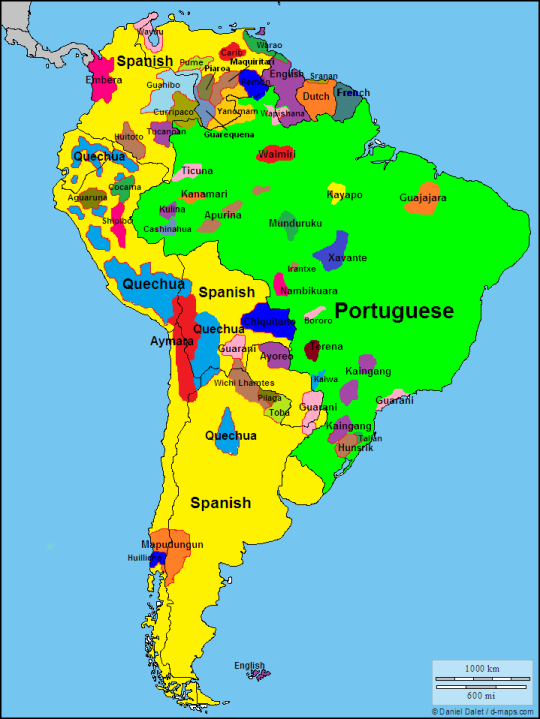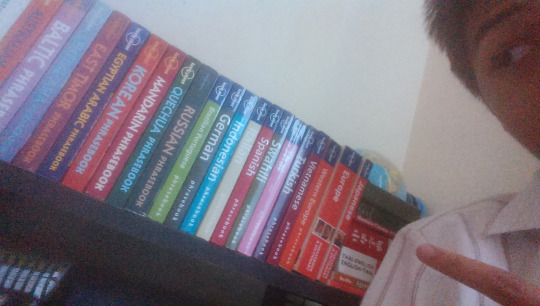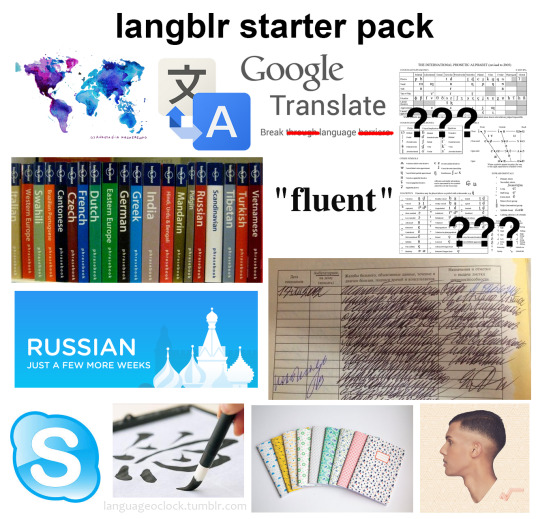Text
TRAVELLINGUAL'S LANGUAGE RESOURCES
Hey guys, if you’ve seen this post before you’d remember it looking a lot different than it does now. The original post which had around 1000 links in total for over 150 languages got stuffed up by Tumblr, removing all the links. I’m really annoyed because I put A LOT of time into it, but fear not for all is not lost. The full list can be found here and you can always message me for resources!
2K notes
·
View notes
Text
fkn nice after two years tumblr decided that this post is too long and that the 1000-odd links should stop working
TRAVELLINGUAL'S LANGUAGE RESOURCES
Learning a language is a challenge and it can be hard to find the right resources. So, with the help of the online language community, I’m compiling a list of resources for a whole bunch of languages.
I’ll be adding new resources every few days, so you can follow me here for weekly updates on additions to the page. If there’s a resource you think should be shared, message me the link. Keep in mind I’ll only include resources that are online and free.
If you find any errors or problems (incorrect or dead link, spelling error, etc.) don’t hesitate to let me know!
I hope you find this helpful!
MINI-COLLECTIONS
In addition to this masterpost, I’m starting to make some mini-collections for groups of related/regional languages. Any updates of these will be posted with the masterpost updates.
Celtic: Irish · Welsh · Breton · Scottish Gaelic · Cornish · Manx
Dutch & Afrikaans + West Frisian · Limburgish
Finnish & Estonian + Sami · Võro
North Germanic: Swedish · Norwegian · Danish · Icelandic · Faroese
LANGUAGES & NOTES
If the language you’re interested in isn’t in this list or even if is, check the General section; there are some good resources for a whole range of languages. Additionally, you can message me and I’ll do some focused searching on it!
Links go to desktop version of section:
General | Abkhaz | Afrikaans | Ainu | Akan: Twi | Albanian | Aleut | Amharic | Arabic: Egyptian, Levantine (Lebanese), Maghrebi (Algerian & Moroccan) | Aramaic | Armenian | Assamese | Asturian | Aymara | Azerbaijani | Balinese | Bambara | Basque | BCS: Bosnian, Croatian, Serbian | Belarusian | Bengali | Berber: Tamazight | Bislama | Breton | Bulgarian | Burmese | Catalan | Cebuano | Chamorro | Cherokee | Chichewa | Chinese: Cantonese, Mandarin | Choctaw | Circassian | Cornish | Cree | Czech | Danish | Dutch | Dzongkha | Esperanto | Estonian | Ewe | Faroese | Fijian | Finnish | French: Cajun, Quebec | French Creole: Haitian, Saint Lucian | Frisian: Saterland, West | Friulian | Fula: Fulfulde, Pulaar, Pular |Galician | Georgian | German: Pennsylvania, Swiss | Greek: Ancient, Modern | Greenlandic | Gujarati | Hausa | Hawaiian | Hebrew | Herero | Hindi: Fiji | Hungarian | Icelandic | Inuktitut | Irish | Italian | Japanese | Kannada | Kashmiri | Kazakh | Khmer | Korean | Kurdish: Kurmanji, Sorani | Kyrgyz | Ladin | Lao | Latin | Latvian | Limburgish | Lingala | Lithuanian | Luxembourgish | Macedonian | Malagasy | Malay: Indonesian, Malaysian | Malayalam | Maltese | Manx | Maori: Cook Islands, Te Reo | Marathi | Marshallese | Mayan: K'iche’, Yucatec | Mongolian | Nahuatl | Navajo | Nepali | Norwegian | Occitan | Ojibwe | Oromo | Ossetian | Palauan | Papiamento | Pashto | Persian: Farsi, Tajik | Plautdietsch | Polish | Portuguese: Brazilian, European | Punjabi | Quechua | Romani | Romanian | Romansh | Russian | Sami: Northern | Samoan | Sanskrit | Scots | Scottish Gaelic | Sicilian | Sinhala | Slovak | Slovene | Somali | Sorbian | Sotho: Southern | Spanish: Latin American | Swahili | Swedish | Tagalog | Tamil | Telugu | Tetum | Thai | Tibetan | Tongan | Tswana | Turkish | Turkmen | Ukrainian | Urdu | Uyghur | Uzbek | Venetian | Vietnamese | Welsh | Wolof | Xhosa | Yiddish | Yoruba | Zulu
/r/… - Subreddit on Reddit. Discussions and resource sharing between learners and native speakers.
Tumblogs (Tumblr blogs) - I’m being pretty picky with these but being active is my main requirement
✔ - Resource I highly recommend
↑ - Goes back to the list of languages (desktop)
All links below open in a new tab
Keep reading
2K notes
·
View notes
Note
Your gigantic resource list looks really great, but I have a problem: for some reason, I can't click on the links! I'm not sure if this is an issue for anyone else, but I just thought I'd let you know in case there is some technical defect ^^
oh damn, haven't checked on my tumblr for a while, I'll check it out. cheers for the heads up
1 note
·
View note
Note
Do you have any resources you can recommend to studying Japanese?
I’ve done the vast majority of my learning in Japanese through school so the resources I can recommend don’t provide a solid foundation. However, they’re still pretty useful.
Tae Kim’s Guide - Great guide to grammar and other aspects of the Japanese language. What I like about his guide compared to others is he establishes and works with the fact that Japanese works very differently in comparison with English.
Denshi Jisho - The online dictionary I use. Numerous ways of searching for words, good info on conjugations and kanji, can be confusing what translation to use sometimes but good nonetheless.
Ichi.moe - Invaluable resource for understanding text. Type a sentence in Japanese and ichi.moe separates all the words and particles, providing definitions for each. It even works with conjugated words, which is super-cool.
Kanji Alive - Neat web application for kanji, providing info on stroke order, applications, etc. You can search for kanji based on difficulty too, by searching grade:1, grade:2…grade:6.
In addition to these, check out the LearnJapanese subreddit for discussions, resource sharing and assistance.
Hope this has been useful.
46 notes
·
View notes
Note
Hi, there, may I suggest good learning resources to your list? And how?
Of course, I'd love to update the list. You can either send them through message or post them and tag me.
0 notes
Note
do I get a prize for being your 100th follower? ;)
Yes! My entire list of resources for learning Dutch ;)
45 notes
·
View notes
Text
Japanese Dialects Masterpost
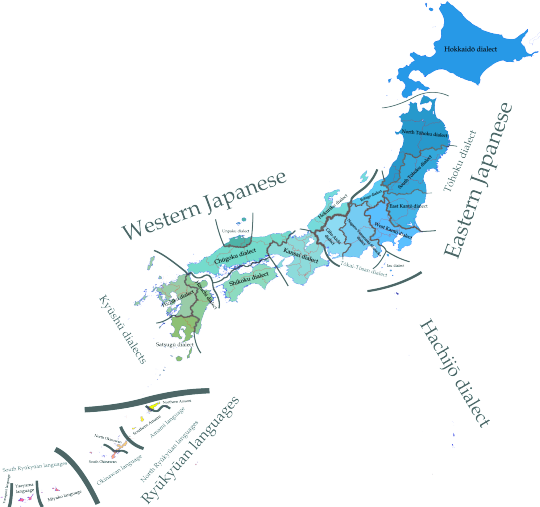
Dialects can be fun and offer cultural insight. They may be useful to learn, though usually only if you have geographical links to a specific area of Japan- perhaps you have family there, personal heritage there, you live there, or are going to do a language exchange in a specific area. Linguists may also be interested just because they are really interesting.
In almost all instances for non-Japanese people learning to understand a dialect when it’s spoken/written (rather than produce it in your own speech) would suffice for communication. As far as I can see the best reason to learn to actually speak a dialect is because you want to communicate with elderly people from that region specifically; most young people have had far more media exposure so they can easily use ‘standard Japanese’/ Tokyo dialect.
If a non-native Japanese speaker learns a dialect and can’t speak standard Japanese, they may find they are seriously limited in conversations and people will inevitably find it weird. They might just find they are incomprehensible:
’I spent three years living in Nemuro, the easternmost town in Hokkaido. […] Hokkaido-ben is often misunderstood outside Hokkaido, Nemuro-ben can’t be understood even in the next town over. So it’s basically useless unless you’re planning a trip to Nemuro (which I would recommend.) However, it does show how many variations there are in dialect, even within one island.’ [Tofugu, my emphasis]
Someone with a low communicative ability in English who could only speak using Cockney rhyming slang, but didn’t know standard English unfortunately would sound ridiculous to natives of that area. It would seem crazy to know ‘You’re ‘aving a bubble mate!’, but not ’You must be joking!’. They’d sound odd and in many instances their language would sound antiquated. Be aware that you may well get a similar reaction if you pepper your speech with regional dialect as a non-Japanese person without being conversationally fluent in standard Japanese. I’m not saying don’t learn dialects, please do if they interest you, learning to understand them when you hear them, rather than necessarily use them in your own speech, is a great idea. If you want to speak in them, please try to do it all in good time and in a respectful way that is not accessorizing the language and culture.
For beginners:
Many of the resources here will be only in Japanese, as this post is aimed at higher intermediate and advanced learners. The section below is in mostly English and will give you a general overview if you’re interested:
lingualift article (scroll down past their email sign up stuff to read)
FluentU will teach you a few basic phrases in a variety of dialects
Wikibooks has links to a few examples of phrases in different dialects
The wikipedia article will give you an informative introduction
Tofugu has a few articles on dialects: Hokkaido | Tohoku | Kansai
Japan Times article on dialects
For intermediate and Advanced learners:
I’ve organised this by prefecture, but it’s worth noting that some prefectures contain several dialects and I’m by no means an expert, I hope the Tumblr Japanese learning community can contribute to and help improve this post.
General:
Dictionary for dialects in EVERY prefecture
Short animations about various dialects
Women from every prefecture saying I love you in their regional dialect
Japanese dialect Wiki
There tend to be Line stickers on sale for dialects, as people think they’re cute and want to show local pride, try searching the Line sticker store for the dialect you want and you can use them in conversations, which will give you a little practise.
Big Weblio guide to all prefectures’ dialects
方言で話そう on Twitter will show you phrases in a variety of regional dialects from around the country
Project Guttenburg article which gets more into the linguistics of Kansai ben
I made a post on Kansai ben a while back and @similarjapanesewords made a post about it before too
video comparing local variations of the same phrase spoken by native speakers 1 2
This Youtube channel has a lot of different dialect tutorials (all Japanese)
There’s another Youtube channel here too (all Japanese)
hougen-japan
ALC dialect quizzes
The Japanese Wikipedia page has a lot more detailed information than the English page, naturally.
Kansaibenkyou
Maps of where some dialects are spoken
Wikipedia has a lot of basic introductory information on dialects, there are almost certainly dialects I’ve missed from this list, if you search for the prefecture or geographical location and the word 弁 or 方言 then you’re likely to find a dialect, even if it isn’t simply called [place name]弁.
Hokkaidō | Hokkaidō ben dictionary | Hougen.u-biq | Tofugu introducation to Hokkaido ben
Aomori | Goo Aomori ben dictionary | Japanesepod101 1 2 3 4 5 | animation about Aomori ben | Kindle book written in Aomori ben
Iwate | Phrase guide | dialect dictionary
Miyagi | Hougen.u-biq | Vocabulary | Introduction to Miyagi ben | Sendai ben
Akita | Akita ben course | How to use け in Akita ben | How to use こ in Akita ben
Yamagata | A few introductory phrases | Yamagata ben phrases | Yamagata ben dajare | Yamagata ben grammar
Fukushima | Fukushima ben Dictionary | Usage guide
Ibaraki | Ibaraki ben dictionary | Learn Ibaraki ben phrases
Tochigi | Tochigi ben guide to pronunciation and expressions | Tochigi ben dictionary |
Gunma | Five page vocabulary guide | 7 lesson course in speaking Gunma ben
Saitama | North Saitama dialect vocabulary | Phrases | More vocabulary | Saitama ben dictionary on Goo
Chiba | East Chiba dialect | Learn Bōsō dialect | Another Bōsō website | Bōsō dialect quiz | Sotobō dialect guide
Tokyo | dictionary | Tokyo dialect on Jlect | Tokyo ben on Chaku wiki | About Tokyo ben | vocabulary
Kanagawa | 10 phrases | Yokohama and Kanagawa dialect dictionary | Kanagawa ben on chaku wiki
Niigata | Niigata ben dictionary | Japanesepod101 1 2 3
Toyama | Vocabulary | Toyama ben on Wikibooks | Simple phrases | About Toyama ben | Basic introduction to Toyama ben | Toyama dialect competition
Ishikawa | Ishikawa ben Dictionary on Goo | Wikibooks Ishikawa dialect guide | Kanazawa ben guide | English book on Kanazawa ben
Fukui | Fukuiben.com | Hokuriku dialect (spoken in several prefectures)
Yamanashi | Koshu Dialect Laboratory | Koshu ben dictionary | Yamanashi ben on Goo | There are a couple of posts here in English
Nagano | Goo Nagano ben dictionary | Nagano prefecture guide to Nagano dialect | Matsumoto dialect page
Gifu | Large vocabulary list | Mino ben guide | PDF guide with accent information etc | another vocabulary list | Short video in Mino Ben
Shizuoka | Page with links to several local dialects found in Shizuoka | Shizuoka ben version of a commerical | 10 funny phrases
Aichi | Hougen.u-biq | Nagoya ben website
Mie | phrase guide | features of Mie ben
Shiga | large word and phrase list | vocabulary list
Kyoto | Hougen.u-biq | vocabulary list | More vocabulary
Osaka | Hougen.u-biq | video tutorial | Kansai ben/Osaka ben word list
Hyōgo | vocabulary list | Hyogo ben on chaku Wiki |
Nara | Nara dialect on Chaku Wiki | Video discussing the subtelties of Nara dialect within Kansai ben | vocabulary list
Wakayama | Word list | Some honorific expressions in Wakayama dialect PDF | Wakayama ben article | Wakayama Kansai ben vocabulary | Apparently there’ll be a radio show about Wakayama dialect soon so maybe they’ll have a podcast
Tottori | dictionary | large word and phrase list | another vocabulary and phrase list
Shimane | Izumo-ben 出雲弁 | Izumo ben in detail
Okayama | large word and phrase list | Okayama ben corner | Interesting Okayama ben
Hiroshima | Hougen.u-biq | Hiroshima dialect
Yamaguchi | Yamaguchi ben | Vocabulary | quiz
Tokushima | Awa ben video tutorial | vocabulary list | large phrase and vocabulary list
Kagawa | vocabulary and phrase list | phrase list
Ehime | Some Iyo vocabulary | Iyo dialect guide
Kochi | Origins of Tosa ben and Hata ben PDF (bilingual) | Tosa ben introduction | Hata dialect introduction | The Lexicon of Kochi Japanese PDF (academic paper) | Kochi funpage on Youtube
Fukuoka | series of videos on how to use Hakata ben | video tutoiral | verb conjugations
Saga | Saga ben dictionary | Goo Saga ben dictionary
Nagasaki | Nagasaki ben resource with recordings of sample dialogues | Goo Nagasaki ben dictionary | A story book written in Nagasaki ben (available on Kindle)
Kumamoto | How to use Kumamoto ben | Kumamoto ken vocabulary, a lot of these seem rough/rude
Ōita | video | Goo Ōita ben dictionary
Miyazaki | Miyazaki ben explanation | vocabulary and explanation
Kagoshima | Vocabulary | big word list | More vocabulary and phrases
Okinawa | Traveller’s guide to Okinawan dialects | Huge list of Ryukyuan vocabulary | Uchinaguchi dictionary
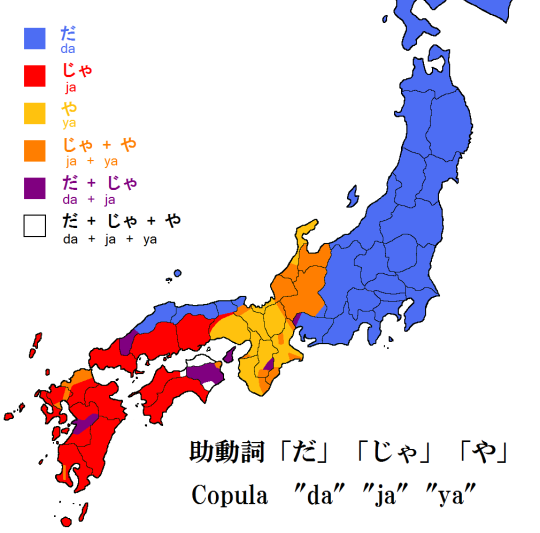
There are books on dialects, typically designed for native speakers, such as this dialect dictionary, or this Tosa ben guide available in Japan, but you’d need some very advanced Japanese to be able to access them, in which case I doubt you’d be following my blog.
Beyond regional dialects there are also many languages that are native to Japan that are not Japanese. If you’re interested in learning Ainu, one of the Ryukyuan languages, Japanese sign language, or another language from Japan that is not standard spoken Japanese then this Tofugu article may interest you. Many of these languages are endangered.
Thanks to these bloggers who helped contribute to this post:
@suzustarlight @tomatograffiti @grapefruitcake
Disclaimer: There are a massive number of regional dialects in Japan, I am neither Japanese, nor an expert, so inevitably I will miss some off this list. If you want to share information about a dialect from a part of Japan you’ve visited or lived in please reblog and add some information or resources, so that we can get this post to a point where it’s as comprehensive as possible. Many thanks!
10K notes
·
View notes
Photo
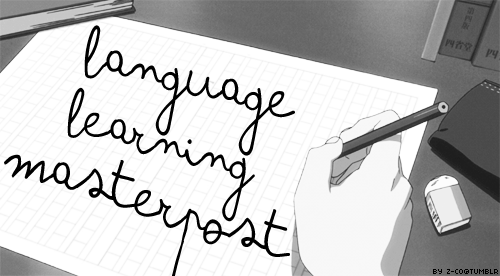
Hello! A lot of you have been asking me where and how I’ve learn multiple languages and well, after a few hours of digging through my browser history and bookmarks, I was able to collect all of these resources. I have personally used all of these, so I can assure you they are useful! If there is something wrong with a website or a link, please let me know. Also, if you have any questions or if you want a learning buddy, my ask box is open. (I speak English and Spanish. I’m learning Korean, German, Japanese, Chinese, Portuguese, Italian, and Esperanto)
Note: Learning a new language requires a lot of dedication, more than you actually think! Especially if you’re learning multiple languages at the same time. It isn’t impossible, but it will take time. And by time I mean months and/or years! So please, be patient. Take your time. Don’t rush. Keep in mind that you will mess up and that’s okay. Practice as much as you can. Practice out loud. Talk to yourself if you can. It doesn’t matter if people think you’re crazy. They won’t be thinking the same when you become a polyglot, so don’t mind them. This is for you and your future.
Get started:
Everything listed below is FREE! Some sites do require you to sign up, but that’s for you to keep track of your own process.
Tips to get you started
Language Hacking tips (blog)
More language hacking tips (blog)
The Polyglot Project (Library with foreign books that lets you translate while reading)
How to Learn Any Language
Effective Language Learning
Ankidroid (flashcard maker)
Multiple languages, one website
Duolingo (Latin American Spanish, French, German, Brazilian Portuguese, Italian, Dutch, Irish, Danish, Swedish, Turkish, Norwegian (Bokmål), Ukrainian, and Esperanto)
BBC Languages (40 languages)
Learn A Language (18 languages)
Conjuguemos (French, German, Italian, Latin, Portuguese, Spanish)
L-lingo (21 languages)
101languages (167 languages)
Languagepod101 (31 languages)
Foreign Services Institute (44 languages)
My Languages (95 languages)
Surface Languages (43 languages)
Lingualia (Spanish)
Linguanaut (16 languages)
OmniGlot (All languages [basic info for some of them])
Memrise (Various languages) (flashcard system)
Livemocha (Various languages)
Polyglotclub
Sharedtalk
Interpals (specify in your profile you only look for language exchange because there can be some creeps in this one)
Couchsurfing
Babbel
Specific Languages
Korean:
Learn to read Korean in 15 minutes! - Really helpful as well
Learnkoreanlp - Focuses on grammar
k-is4korean
Talktomeinkorean
Learn-korean
korean-flashcards - Focuses on vocabulary
Easytolearnkorean
Korean.go.kr/ - Focuses on pronunciation
Lang-8 - Community to correct your entries
Dongsa - Conjugations for verbs
Howtostudykorean- EXTREMELY helpful when it comes to learning hangul and writing structure!
hangulpractice - This blog has some useful posts.
letstteok-korean
Talktomeinkorea (YouTube channel)
fluentkorean
sweetandtasty
seoulistic - For culture lessons
GenkiKorean
Korean Word Game
English-Korean Vocabulary Quizzes
Hangul Keyboard - This is also EXTREMELY helpful with Hangul/romanization. It also converts any romanized syllables into hangul
Korean - Reddit threat
Chinese/Mandarin:
Hackingchinese
Chinese-tools - Pretty helpful with pronunciation.
Chinese Open courseware
Chinese Language - Reddit threat
Chinese Textbook
Chineasy
Learn Mandarin
Chinese Hacks
yoyochinese
How can I learn Chinese
Why is Chinese so damn hard?
Japanese:
Learn Japanese I / II - YouTube
Guidetojapanese
Free Japanese lesson
Japaneseclass.jp
thejapanesepage
Japanesepod101
Tofugu
Erin’s Challenge!
Jplang
Yesjapan
Marugoto - Includes culture lessons
Kana Invaders - Fun game for learning Kana
Another great masterpost for Japanese - So many resources!!!
Esperanto:
Note: I did a research and supposedly Esperanto is an easy-to-learn language that helps you with other languages.
Esperantofre
Esperanto “library”
Esperanto Grammar
Esperanto (Duolingo)
German:
Learn German Online
German Language Guide
Mission Berlin - Mystery adventure game
Basic German
Deutsch Lernen
Slow German
Kids’ Games - For vocabulary
Italian:
MIT Open Courseware
Italian Language Guide
Italian Grammar
Italian For Beginners - YouTube
Latin:
Some Latin grammar
Latin Course - YouTube
Portuguese:
Oneness
Ta Falado
Portuguese (Duolingo)
French:
Learn French Guide
Coffee Break French
University of Texas: Francais interactif
Podcastfrancaisfacile
French Language Guide
Lingopolo/french
Le Journal en français facile
News in Slow French
Francolab
Cliffs Notes
Native French Speech
French Podcast
Spanish:
Spanish - About.com
@spanishskulduggery
Study Spanish
Cliffs Notes
Destinos
One Minute Spanish
One Minute Spanish (Latin America focused)
Thai:
Learn Thai Podcast
Woman Learn Thai
Let’s Talk Thai
Thai 101
Lingopolo/thai
Arabic:
Books to Learn Arabic
Mandinah Arabic
Arabic Verbs (PDF)
al3arabiya
Arabic Pronouns (PDF)
Arabic Alphabet / Also Here / And Here!
Arabic For Language Exchange
Peace Corps
Hindi:
A Door Into Hindi
Learning Hindi
NYU Hindi Course
Quillpad - Great for typing
Namaste Dosti
SU Hindi Course
ispeakhindi
Hindi Script
Vietnamese:
VietnamesePod101
Survival Phrases
seasite.niu.edu
Learn Vietnamese Online
Greek:
Some Greek Grammar (New Testament)
Romanian:
Rolang
One Minute Romanian
Welsh:
Say Something in Welsh
Welsh Vocab
Dutch:
Lingopolo/dutch
Learn Dutch
Russian:
Speak Russian
Russian Alphabet
Taste of Russian
Master Russian
Russian Open Courseware
Russian Handwriting
Swedish:
Klartext
SwedishLingQ
Survival Phrases
That’s it. That’s all I have right now. I’ll try to search for more and will keep updating this list! If you have a request for a specific language, just send me an ask. Have fun and good luck!
210K notes
·
View notes
Note
What author, publisher, etc. are your language books from?
I mostly collect phrasebooks from Lonely Planet (most accessible). I have a bunch of other books from various publishers but I don't really use them.
4 notes
·
View notes
Photo
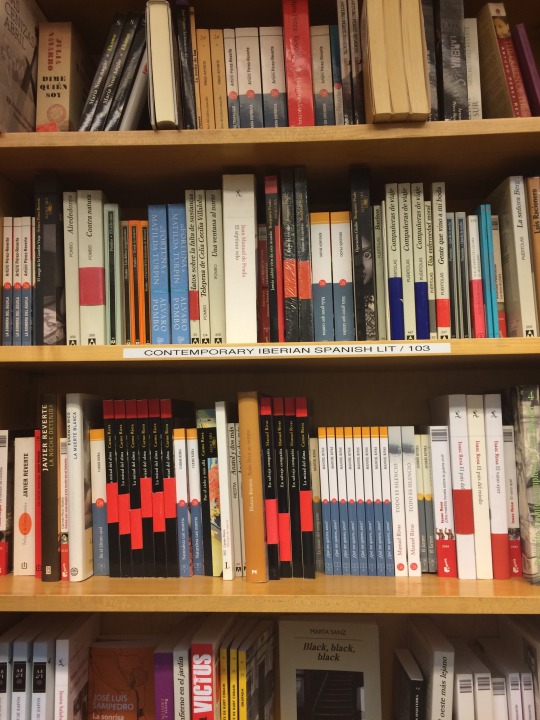
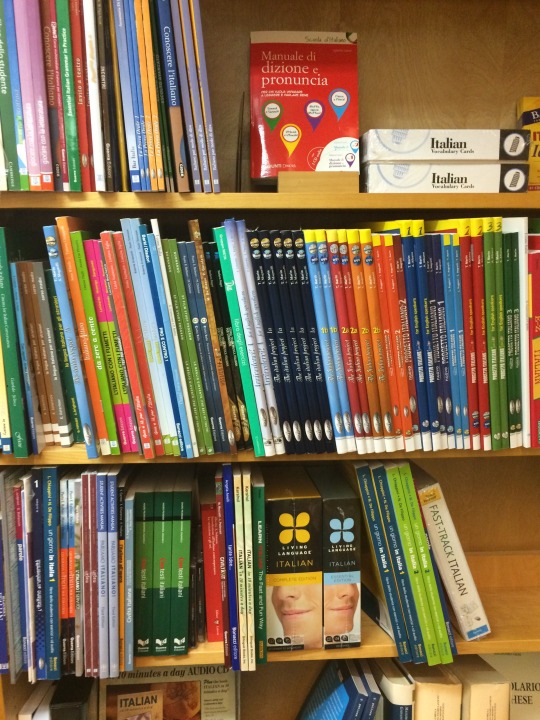
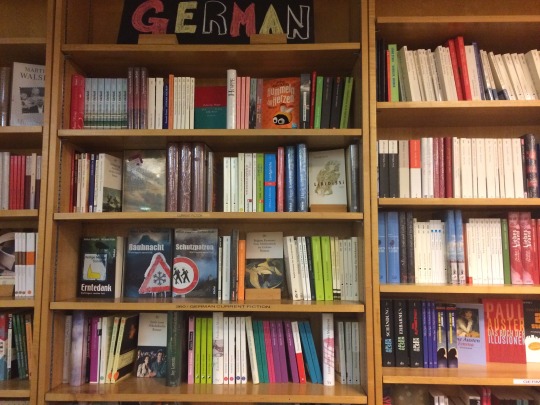
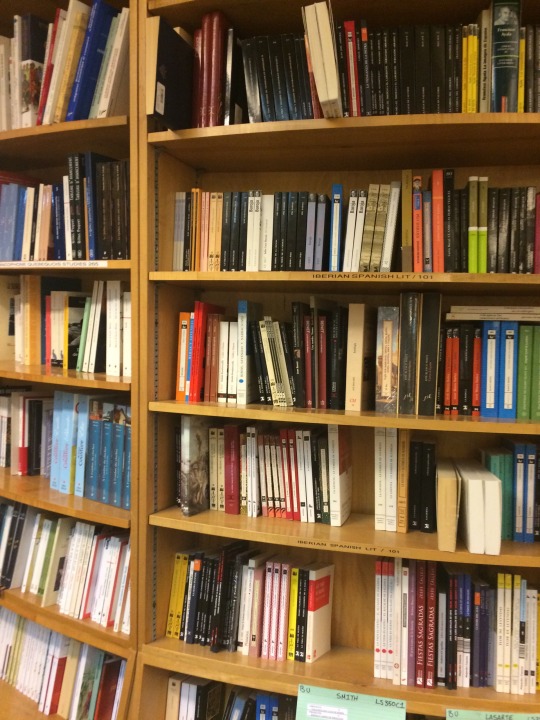
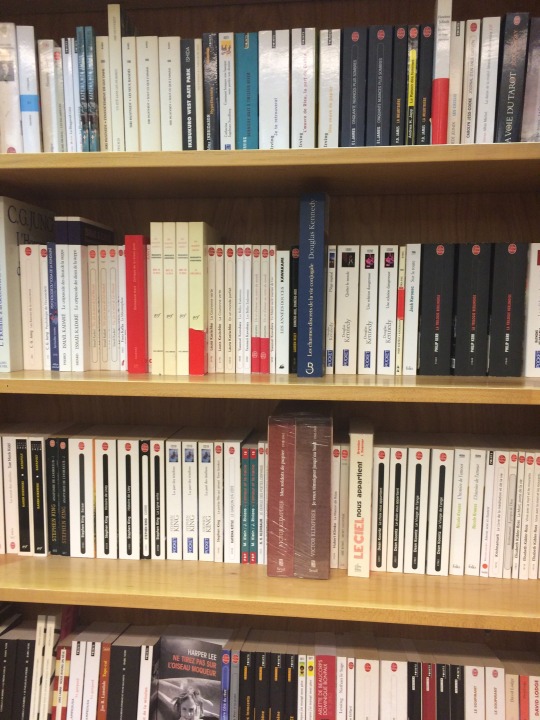
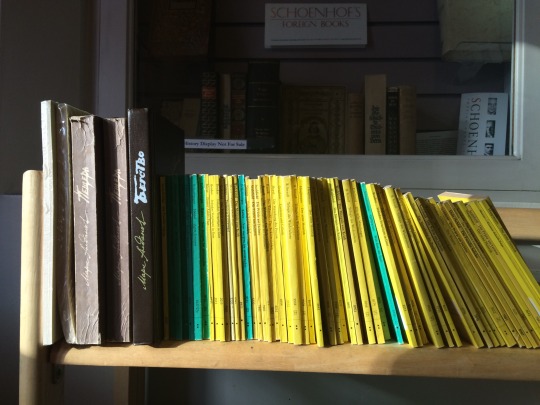
really glad i got to go to the biggest foreign language bookstore on my continent today ☄
390 notes
·
View notes
Conversation
a summary of the horrible histories cast
mathew baynton: the only one who can sing, apparently
martha howe-douglas: queen of everything, literally
jim howick: turns out he can also sing; SHOUTY MAN
ben willbond: straight man who can't keep a straight face
simon farnaby: the one you get when you need a hunk; Death
laurence rickard: THAT'S THE END OF OLD BOBSY
2K notes
·
View notes
Text
for me it’s ‘kackerlacka’
Idk whether this is just me but like do you guys have a certain word in a language that you just randomly repeat to yourself throughout the day for no reason? Like I’ll have a shower and I’ll just say to myself “kjærlighet”. I’ll have breakfast and as I’m eating I’ll say “kjærlighet”. Like? I don’t know why I do that?
1K notes
·
View notes
Text
Dear Baby Studyblrs...
I’ve noticed some studyblrs confess that they feel a pressure to have it together and live up to the perfectly organised studyblr aesthetic. This is a new pressure; before instagramming our daily lives became ubiquitous nobody would see your notes but yourself. And whilst it’s nice to feel like your notes are beautiful, they don’t have to be to get the job done. And I speak as someone who has made some pretty gorgeous notes, and also some that are completely incomprehensible to all except myself.
So here goes…
It doesn’t matter if your study space isn’t picture perfect as long as it works for you. It doesn’t matter if your notes are neat, perfectly written in 5968 colours of sparkly pen, or messy biro on loose sheets of paper. As long as it works for you. It doesn’t matter if you buy branded stationery or use whatever you could get your hands on. As long as it serves the purpose of helping you learn.
Pretty spaces and neat notes are lovely, but you do not necessarily need these things to study effectively. There are as many different ways to study as there are people doing said studying. There’s no need to feel pressured to buy stationery you can’t afford. There’s no need to feel bad about having a less-than-picture-perfect setup. Don’t feel like you have to spend an age crafting perfect- looking notes, if that time would be better spent moving onto the next study topic. You may prefer one approach at one point in the process, and a completely different approach closer to exam time.
The aim of studying is to learn effectively. Preferably whilst enjoying it, of course. Sometimes it is enjoyable and effective to make pretty notes. At other times, making perfect notes is literally the most useless and stressful thing compared to just reading through material at a more reasonable pace. Like making perfect notes? Awesome. Need your messy chaos? Also awesome.
4K notes
·
View notes
Photo
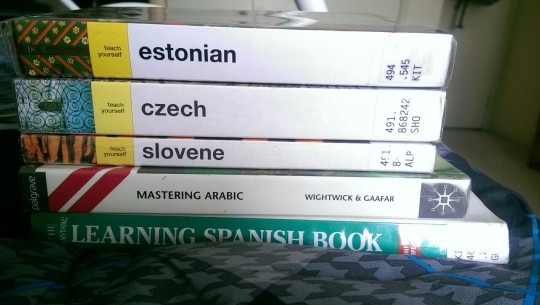
local book sale haul
12 notes
·
View notes
Photo
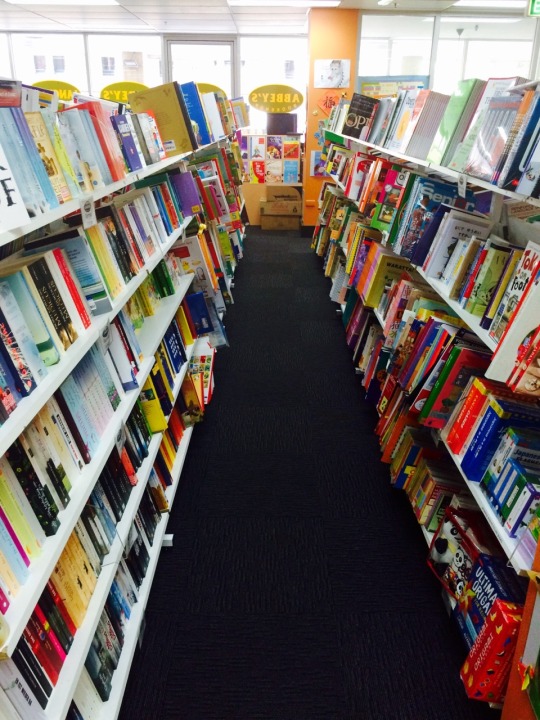
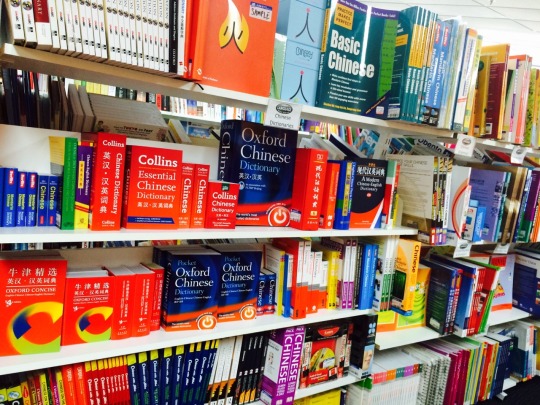
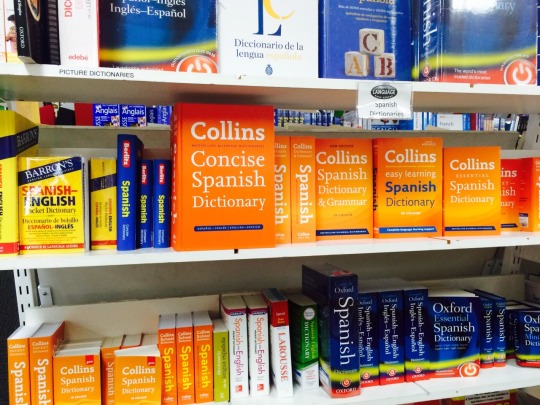
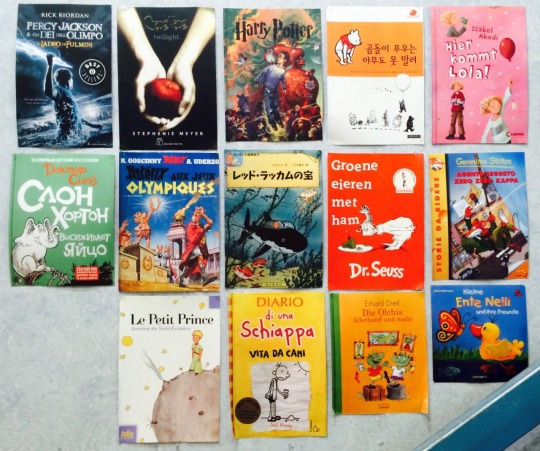
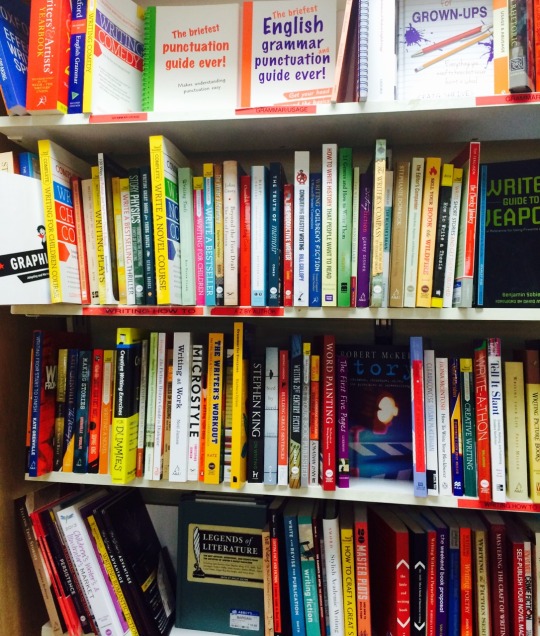

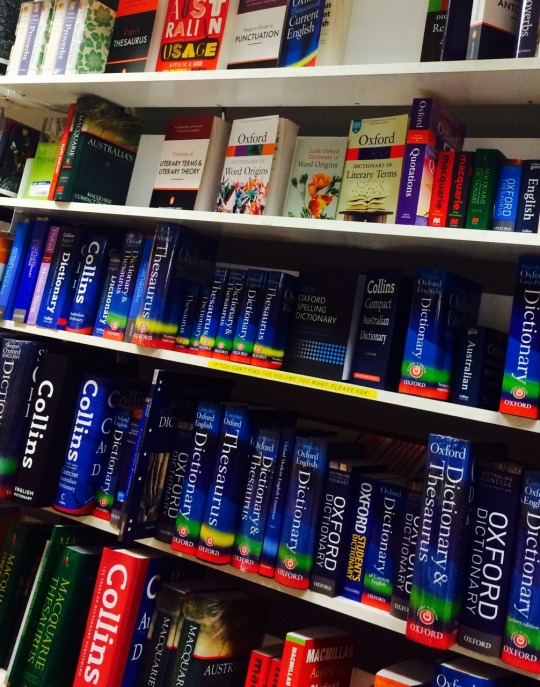
(x)
410 notes
·
View notes
